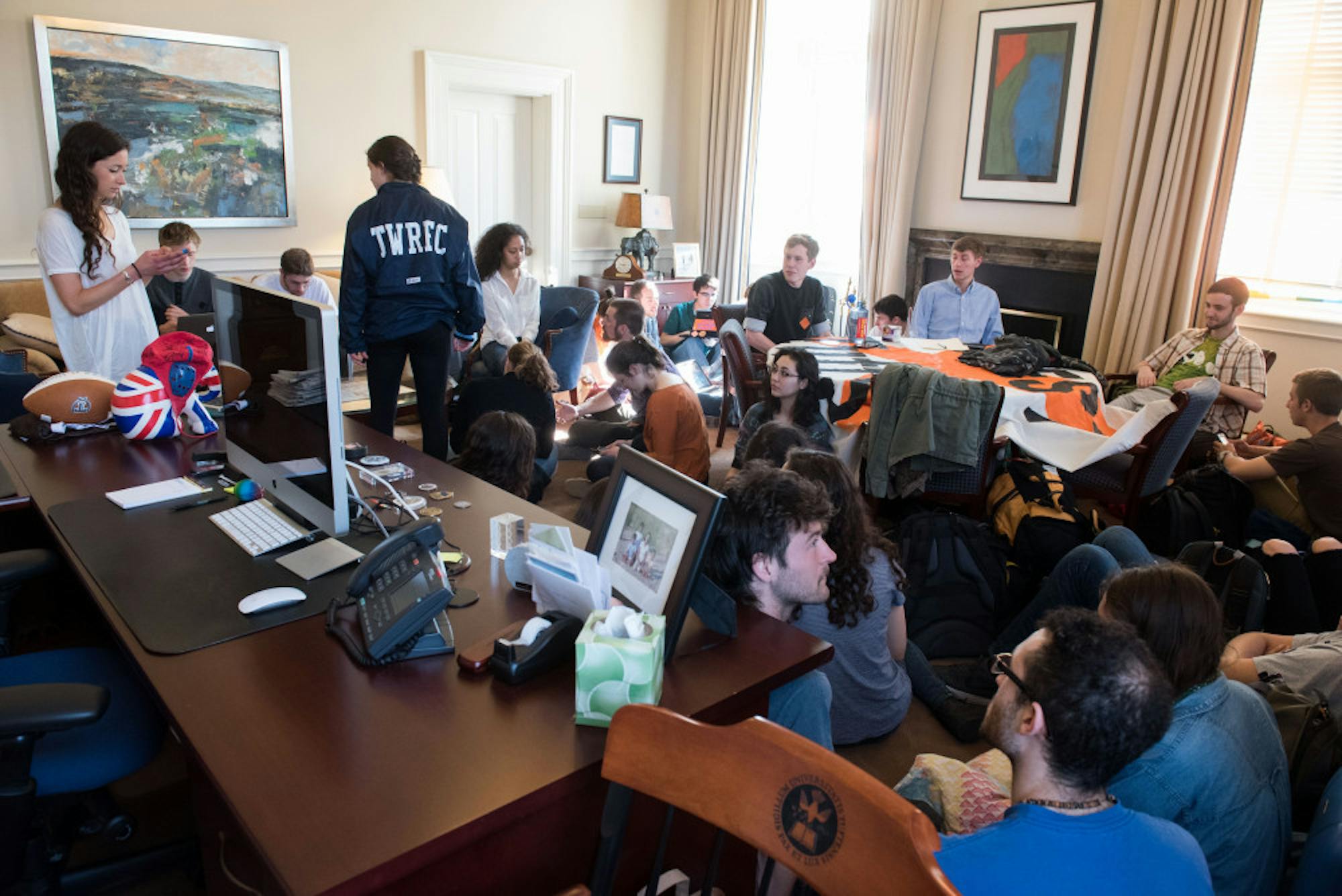Gallagher said the protesters have been negotiating with Campbell to have an open meeting with members of the Board of Trustees. This request has been denied by Campbell, who told the students that President Monaco agreed with this decision, Gallagher said.
Gallagher, a sophomore, also said that administrators have banned the students from bringing any more food into the building.Executive Vice President Patricia Campbell said the decision to not allow more food was made because the protesters entered Ballou Hall uninvited and are in violation of the part of the university's Gatherings, Demonstrations, Protests and Disturbances policy that prohibits the occupation of a private office.Dean of Student Affairs Mary Pat McMahon and Judicial Affairs Officer Mickey Toogood sent a memo to the protesters outlining this policy on Wednesday, the day the sit-in began.
"They weren't invited in and they are in violation of university policy, and I think we've been gracious in how we've tried to handle it, but we're not encouraging them to stay by providing more food," Campbell said.
Campbell said the protesters can leave to get food, but will not be allowed back into the building."Thirty-three people in a very small private office, and I do think it would be inappropriate to have a lot food brought in," Campbell said. "Anytime they want they can leave and get all the food they want."
Gallagher said the sit-in will continue for as long as the protesters are able to remain. "We definitely see it as they're starving us out, but we do plan on staying for as long as our food supplies last," she said. She said the sit-in protesters have enough food to last until at least tomorrow.According to Campbell, administrators refused the request for an open forum because they believe the university has already taken numerous steps to consider the issue of divestment, including the formation of a working group with student participation last year and the release a public report to the university on fossil fuel divestment.
"We're actually kind of proud of our position. A lot of universities just said 'No, never,'" Campbell said. She said the administration will continue to have conversations about divestment in the future.
Gallagher said that TCA strongly disagrees with this assessment of the working group, and that many felt the working group served only to reinforce the administration's position.
"We had this kind of working group set up with the administration last year before they decided not to divest," Gallagher said. "Obviously the administration thought it went super well ... We don't feel that way at all. We felt that it was very rigged from the beginning and they heard what they wanted to hear."
Instead, the university aims to hold a smaller group discussion with informed experts, Campbell said. One Board of Trustees member has already agreed to participate, she said.
The sit-in protesters and other activists will hold a press conference and rally tomorrow, April 24 at noon inside Ballou, to which several major regional news sources including the Boston Globe, Boston Magazine and several TV stations have been invited.
"From the perspective of just your average Tufts student, it's so easy to write off what we're doing right now as just another annoying activist tactic ... and I'd just really like to emphasize to our community that this is something that clearly some students recognize as the most pressing issue of our time," Gallagher said. "These are the lengths we're going to to try to make our institution do something meaningful to address climate change."






